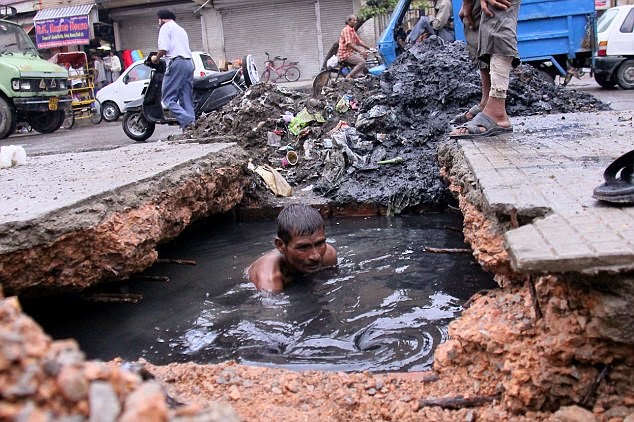The photo ops were many as India launched its Swach Bharat or Clean India mission. Everyone who was anyone wielded a broom on October 2nd 2014. Millions even took a pledge. The mission comes at a whopping price: lacs of crores rupees. Our tech savvy PW even initiated a challenge that roped in celebrities of all shades and hues: each one was to get 9 more people and so on. From sanitation for all to clean drinking water; from littering to garbage disposal the task is daunting. That it is needed is unquestionable. But many questions do come to mind.
First and foremost why did it take us as a nation almost 7 decades to realise we needed a clean India. And why have all the previous efforts failed. Unless we answer these questions, we will not be able to ensure its success. What first comes to mind is why we as individuals have failed to keep our surroundings clean. We do pride ourselves as a civilisation that promotes cleanliness above all else, but having baths everyday does not ensure a clean land.
To my mind, the main problem is our social structure that assigns the task of ‘cleaning’ and particularly toilets to one group of persons who it is believed are ‘born’ to do so. I get enraged when I see people unwilling to pick up a piece of garbage themselves. They would rather wait in the dirt for the right person to appear than clean the mess themselves. As long as this remains our attitude, things cannot change. After the launch of the said mission at India Gate, one would have hoped that those present – be it school children or VIPs – would not leave litter behind. But that was not the case, they place was left littered with water bottles and discarded copies of the pledge and as is always the case in India, the cleaners came by afterwards and did the job.
These people sadly do not always work in ideal conditions. The picture above shows how a clogged drain is unclogged in India. Maybe the need of the hour would be to provide protective gear to ALL those who have to handle garbage or dirt of any kind. My heart goes out to the rag pickers, often children whose hands and feet get cut because we have placed broken glass or open blades in our daily garbage. I wonder how many of the photo op subject would have agreed to plunge their bare body in the drain in the picture. I guess were that to be necessary than as was done in Slumdog Millionaire, the pit would have been filled with chocolate or peanut butter and the said VIP would have then agreed to descend in the ‘dirt’ and have his picture taken.
As long as casteism is the order of the day, things cannot change. We will always look over our shoulder for the right person to come and clean our mess. But things are not sacrosanct. I remember my mother meeting a cleaner of Indian Origin and of a higher caste in a Heathrow bathroom. She was quick to admit sheepishly that she would NEVER tell her family back home about the nature of our work. That is who and what we are and unless we change this attitude, we will never have a clean India.
In free India, everyone should have equal opportunities and no one need be branded by birth. Those who belong to what we call the lower’ castes want out of this stranglehold and have aspirations and dreams for their children, and they should as they too are protected by our Constitution. Laws and punishment will not bring the change we seek. It is mindset that have to be changed. We have to change our habits and ways: spitting pan, throwing wrappers, chucking plates and cups anywhere and so on. But we also need to change our attitude and accept to clean anything, even a toilet.
I have had several occasions where I have been compelled to lead a toilet cleaning campaign often in conference centres and other institutions. Now my team comprised of well educated youngsters of hallowed caste and class. I could see resentment on their faces when they realised I was about to embark on a loo sprucing mission. That is not what they had signed for. But I must admit that each and every time it took only a few moments before everyone hitched their saris or rolled their sleeves and took to the task. All I needed to do was start scrubbing the filthiest loo. Even today I have no qualms undertaking any cleanliness campaign as I will not sit in a filthy place. At project why every staff cleans the classroom and toilet they work in.
Traditions and mores have to change with time and though we need to keep the good ones, we also need to have the courage to cast away those that have gone obsolete or are impediments to our development.
I will urge all to give some thought to what I have said and to lend your voice to the people who still clean our filth in inhuman conditions.


